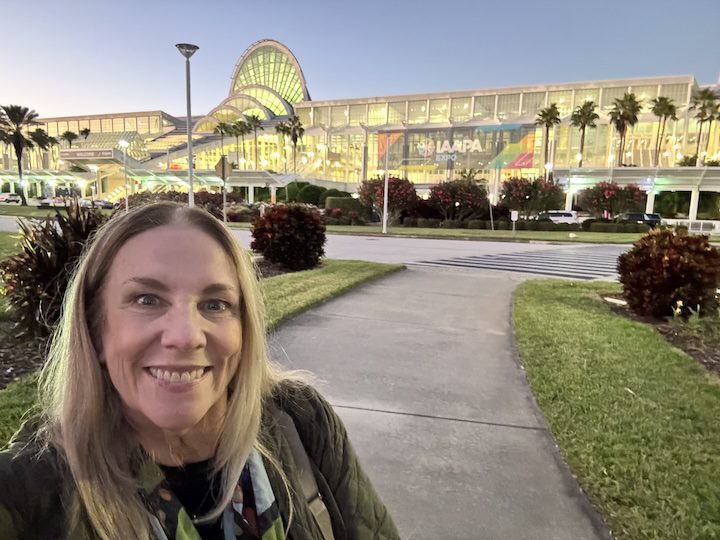An enjoyable walk down memory lane preceded my visit to the Thrill Club meeting on 2025 February 5, visiting campus from my sabbatical away. I presented about the history and past activities of the club since its precursor (student research assistants in the THRILL Lab) and establishment as a formal club, and had a chance to think about the great careers that have emerged from the club.
Continue reading “TMU Thrill Club history”News
IAAPA 2024
Excited to be back to IAAPA again, and delighted to join another speaker panel. Looking forward to inaugural women’s lunch and the academic symposium on Friday, among many other plans.

2024 Open Qualifying
Welcome to new teams and returning teams, making a record number of teams entered in the 2024 Open Qualifying challenge for TMTDC: Toronto Metropolitan University Thrill Design Competition. We’re currently reviewing the submissions and will send out invitations by the start of August. From there it is a whirlwind of preparation.
Continue reading “2024 Open Qualifying”Thrill Design Competition
The 2024 Toronto Met U Thrill Design Competition is underway with Open Qualifying challenge in the hands of new and returning teams. Teams interested to receive announcement for 2025 should contact us and we will be sure to send an announcement in early 2025.
Continue reading “Thrill Design Competition”Mock competition
Toronto Met Thrill Design Competition is now an established elite experience for students interested in theme park design. The TMU Thrill Club had a taste of the experience over the weekend of 22 – 26 March 2024, braving a big dump of snow to get to the challenge reveal. One attraction design challenge, and the luxury of FOUR days to tackle it! (The Invitational has a maximum of three, and as little as ONE day to design a challenge response!) As usual, all challenge details are top secret, so nothing more to say here. Teams presented to a fantastic professional jury comprised of Peter Marshall (FORREC), Joelle Javier (TSSA) and Jake Fulton (outgoing Club President and TMU 2024 grad joining Universal Destinations and Experiences).
Approaching a grad school supervisor
At the start, I will say that other supervisors will feel differently. While this pertains to me, and I don’t think it is completely unusual, don’t assume faculty members are a monolith. However, 19 out of 20 grad-school applicant emails I receive can’t be considered, and many are mere spam that won’t even get an acknowledgment.
Continue reading “Approaching a grad school supervisor”Human factors in amusement rides and attractions
Virtual visit to Queen’s U
Themed Entertainment Development Team (QTEDT)
Ergonomics (or human factors) is the scientific discipline concerned with the understanding of interactions among humans and other elements of a system, and the profession that applies theory, principles, data and methods to design in order to optimize human well-being and overall system performance.
Continue reading “Human factors in amusement rides and attractions”First Fridays at Fusion Studio (October 2023)
All those pandemic virtual skills came in handy to visit and present to the Purdue University Fusion Studio for their “First Friday” (Zoom) session in October 2023, talking about participation in amusement attractions and lessons for eligibility analysis and inclusive design of immersive entertainment using human factors engineering (and what your audience with disabilities would like to know!) Check this lecture series if you are interested in technology and entertainment.
Thrill Design Competition
The competition originally known as the “Ryerson Invitational Thrill Design Competition” was renamed with the renaming of the University, and is now known as the Toronto Metropolitan University Thrill Design Competition. In addition, in 2022, we introduced an Open Qualifying (OQ) competition in the summer, to select teams for invitation to the TMU Thrill Design Invitational, taking place at Universal Orlando Resort.

Thrill Club project demo
Shortly after the Thrill Club began developing a scale model dark ride for its future activities, we had the opportunity to offer a demonstration for an audience of amusement ride safety inspectors, owners, and others at the annual TSSA Ride Safety Seminar in Niagara Falls. A smaller scale first draft model was quickly completed and packed for transport! Club president Jake Fulton attended the safety seminar and enjoyed great professional networking and continuing education hours as well.

